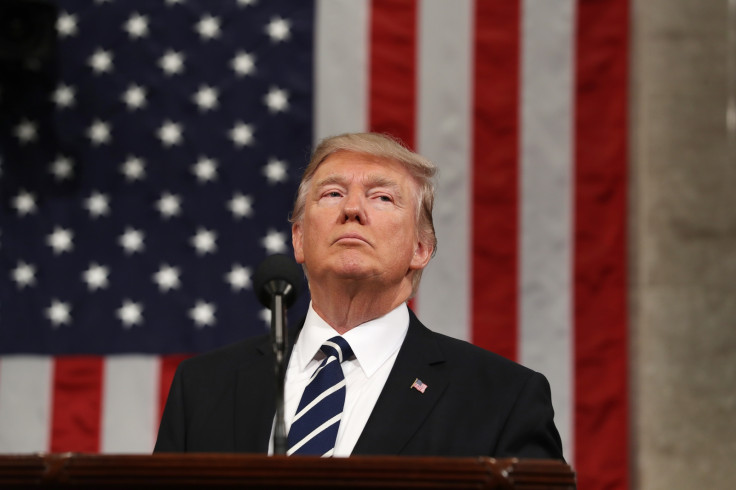Trump creates tech council to 'transform and modernise' US government's IT operations
'Americans deserve better digital services from their government,' the executive order read.
President Donald Trump signed an executive order on Monday (1 May) to create a new technology council tasked with modernising the US government's information technology. About 20 tech executives will reportedly attend meetings at the White House in early June to discuss ways to modernise the federal government's operations.
"Americans deserve better digital services from their government," the executive order dated 28 April reads. "To effectuate this policy, the Federal Government must transform and modernise its information technology and how it uses and delivers digital services."
The new American Technology Council, will include the president as chair as well as the vice president, the secretaries of Defense, Commerce and Homeland Security, and the chief technology officer among other government officials including the president's senior adviser and son-in-law Jared Kushner.
The positions of the US chief technology officer and the directorship of the Office of Science and Technology Policy — which are both slated to participate in the council — have yet to be filled.
Chris Liddell, the White House director of strategic initiatives and former Microsoft and General Motors chief financial officer, will be the council's director.
The council's director may invite other additional attendees to the meetings as well, the order states.
According to the US Government Accountability Office, the US government spends over $80bn (£62.02bn) a year on IT. However, spending on development, modernisation and enhancement activities has fallen by $7.3bn since 2010.
According to the 2016 GAO report, "federal legacy IT investments are becoming increasingly obsolete: many use outdated software languages and hardware parts that are unsupported."
"For example, the Department of Defense uses 8-inch floppy disks in a legacy system that coordinates the operational functions of the nation's nuclear forces," the report found. "In addition, the Department of the Treasury uses assembly language code — a computer language initially used in the 1950s and typically tied to the hardware for which it was developed."

The White House has not yet specified who will attend the planned meeting in June. Sources "familiar with the Trump administration's thinking" told Recode that the Trump administration has reached out to multiple Silicon Valley giants including Apple, Amazon, Facebook, Google, IBM, Oracle, Cisco, Intel, SpaceX and Salesforce.
Multiple executives attended a meeting with the then-president elect at Trump Tower in December including Alphabet's Eric Schmidt and Larry Page, Apple's Tim Cook, Facebook's Sheryl Sandberg and Microsoft's Satya Nadella.
The executive order comes a month after the White House established the Office of American Innovation to develop and implement policies that scale efficient private-sector models within the federal government to spur innovation and job creation.
"We should have excellence in government," Kushner told The Washington Post in March. "The government should be run like a great American company. Our hope is that we can achieve successes and efficiencies for our customers, who are the citizens."
So far, the White House has had a precarious relationship with Silicon Valley with many tech leaders critical of Trump's controversial immigration order, crackdown on the H-1B visa programme, battles over science and plans to kill net neutrality.
While some tech executives, such as Tesla and SpaceX's Elon Musk, are currently on the president's business advisory council, a severe pushback from employees and customers led Uber head Travis Kalanick to step down from the council.
"I understand the perspective of those who object to my attending this meeting," Musk said at the time, defending his decision to stay on the council. "But I believe at this time that engaging on critical issues will on balance serve the greater good."
© Copyright IBTimes 2025. All rights reserved.





















